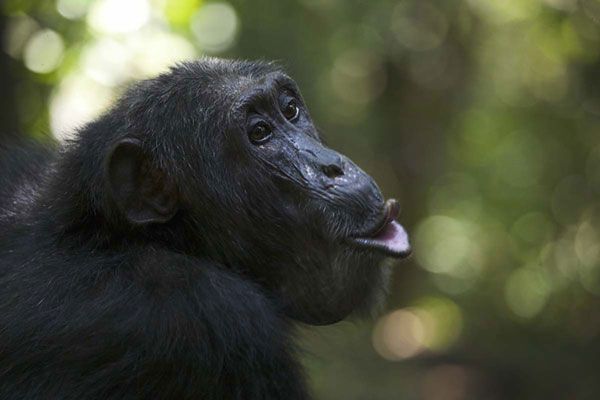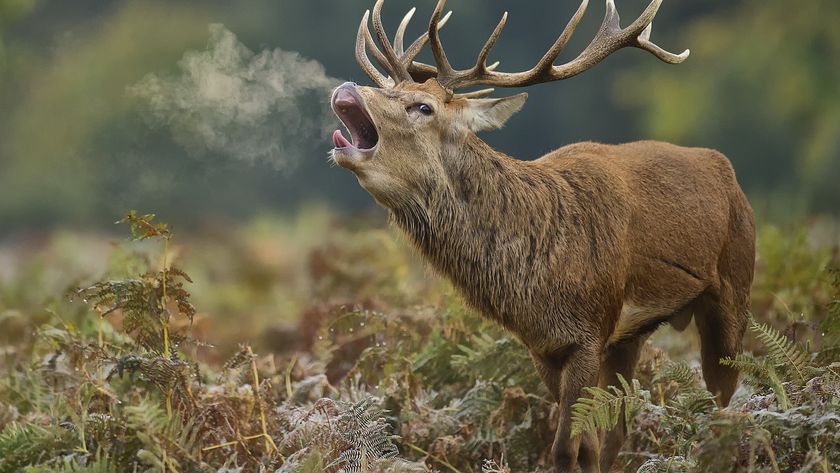Why Female Chimps Shout or Shut Up During Sex

Female chimps often cry out during sex to attract nearby males, but they keep quiet when other females are around so they don't alert their competition, a new study finds. The function of copulation calls made by female primates (a group that includes lemurs, monkeys, and apes, such as humans and chimpanzees, our closest relatives) has been debated for years. One hypothesis: the calls let females advertise their sexually receptive state to potential mates, which would create competition among males in the group. By pitting the males against each other, the successful female would end up with the strongest partner and have the highest quality offspring, the thinking went. But psychologists Simon Townsend and Klaus Zuberbuhler, both of the University of St. Andrews in Scotland, didn't find any evidence for this kind of male-to-male competition, or any link between calling activity and a female's hormonal state when they observed the behavior of chimps in the Budongo Forest in Uganda. Instead, female chimpanzees seem to use the copulation calls strategically to enlist the future protective support of males against aggressive group members, especially other females. The females produced more calls when high-ranking males were around, but kept mum on their sexual activity when high-ranking females were nearby. "The female chimps we observed in the wild seemed to be much more concerned with having sex with many different males, without other females finding out about it, than causing male chimps to fight over them," Townsend said. This strategy could be used to minimize the risks of competition, Townsend explained. "Competition between females can be dangerously high in wild chimpanzees," he said. Because females make the calls not only during their fertile period, when they are most likely to conceive, they are acting something like the chimp equivalent of gold diggers. "Copulation calling therefore may be one potential strategy employed by female chimpanzees to advertise their receptivity to high-ranked males, confuse paternity, and secure future support from these socially important individuals," Townsend said. The findings were published on June 18 in the online journal PLoS ONE. The study was funded by the Biotechnology and Biological Sciences Research Council of the United Kingdom, an EU Pathfinder grant and the German Max Planck Society.
- Video: Jane Goodall's Wild Chimpanzees
- Forbidden Fruit Entices Female Chimps Into Sex
- The Sex Quiz: Myths, Taboos, and Bizarre Facts
Sign up for the Live Science daily newsletter now
Get the world’s most fascinating discoveries delivered straight to your inbox.

Andrea Thompson is an associate editor at Scientific American, where she covers sustainability, energy and the environment. Prior to that, she was a senior writer covering climate science at Climate Central and a reporter and editor at Live Science, where she primarily covered Earth science and the environment. She holds a graduate degree in science health and environmental reporting from New York University, as well as a bachelor of science and and masters of science in atmospheric chemistry from the Georgia Institute of Technology.











